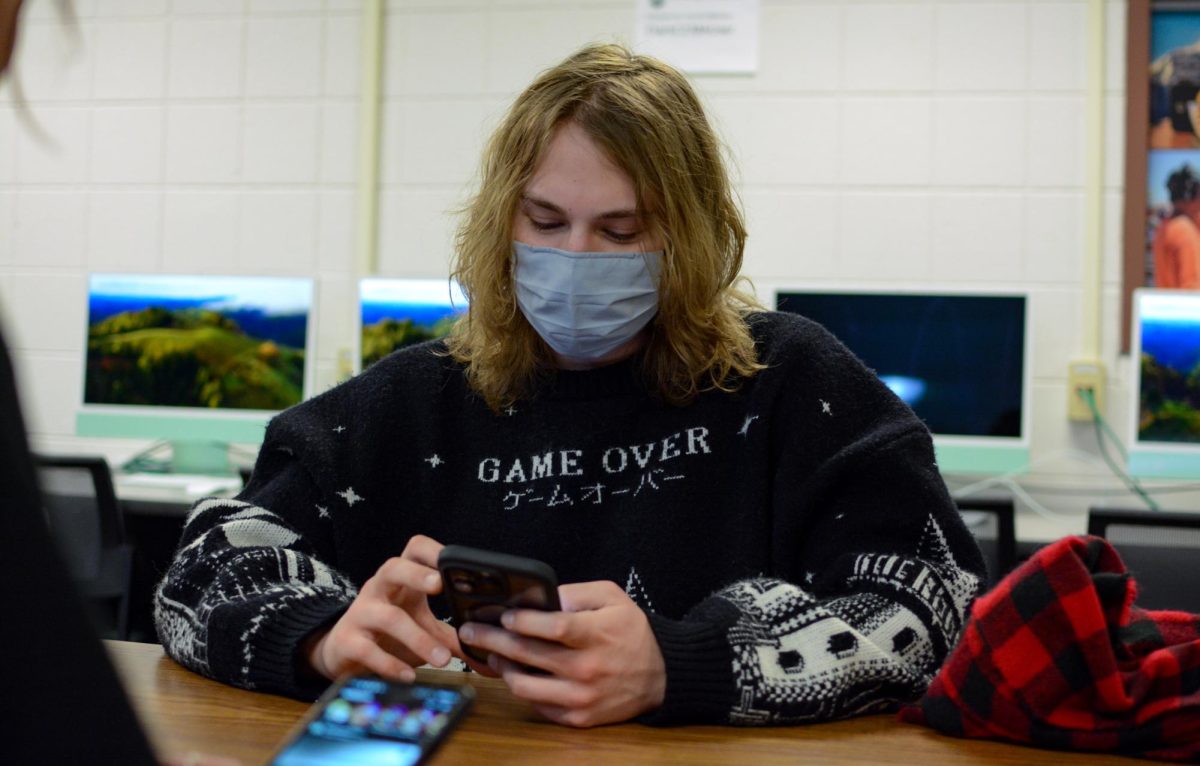Chronic illness may seem like something that doesn’t affect young people, but endometriosis is one of many chronic illnesses that can affect a college student’s life. For a lot of people, college is one of the busiest times in a person’s life. From classes to homework to socializing with friends, constant activities are enough to leave anybody exhausted after a busy day. But for someone with endometriosis, there’s far more than exhaustion that can come from an average day in college.
So, what on earth is endometriosis? Endometriosis is a condition where tissue that is similar to the lining of the uterus spreads outside of the organ. This usually occurs within the pelvic cavity, which can include ovaries, fallopian tubes, outer surface of the uterus and even on the bladder or bowels.
Since this disease involves tissue being misplaced, it can cause horrendous side effects, including excruciating pain, heavy bleeding and sometimes infertility. CSU Health and Medical Center Physician and Clinical Supervisor of Women’s and Gender Care, Dr. Worford says that these symptoms can vary in severity, but a lot of people with endometriosis end up missing school or work frequently due to these symptoms.
Madison Greves, a Colorado State University student, knows what it’s like to have to miss copious amounts of school due to endometriosis. She was diagnosed her sophomore year of high school after experiencing symptoms like bloating, fainting and migraines for a year.
“I got a 504 plan because I was just missing so much school, just bedridden in extreme pain,” Greves says.
Since she was missing so much school due to endometriosis symptoms, she had to take drastic measures and obtain a 504 plan to ensure she would be able to pass high school. This plan helps students navigate their disabilities with their school, which in Greves’ case, was necessary to make sure she was successful in her classes and able to graduate on time.
Endometriosis can be debilitating and make going to school or work incredibly difficult, whether that’s high school or college. Due to this, Greves has found the pandemic to be a blessing, not a curse.
“I think that the pandemic has actually kind of been lucky for those with chronic illnesses because I’ve been able to do my schoolwork from my bed if I need it,” Greves says.
This has helped Greves to miss less school and excel in her first year of college. The ability to work from home without fear of missing classes has given people with endometriosis the flexibility to not push themselves through pain to get to a class or other outing, which can be helpful in the midst of a flare-up.
“I think that the pandemic has actually kind of been lucky for those with chronic illnesses because I’ve been able to do my schoolwork from my bed if I need it.”
While people with endometriosis can experience symptoms on a daily basis, there are times when the symptoms are more intense than normal, which is called a “flare-up.” During a flare-up, doing everyday activities, like going to class or walking across campus, can prove exhausting and impossible. A flare-up can be mild to extreme, and curling up in bed with a heat pad and not moving can sometimes be the only way to cope with it. If one can’t even get up to go get a drink of water, the chances of them making it to class are slim.
Missing classes, having to bail out of events and consistent pain can also take a toll on a person’s mental health. People with endometriosis often have depression or anxiety due to chronic pain and symptoms that come from the condition. In addition to dealing with mental health issues, people with endometriosis often deal with negative emotions, like guilt, because they might not be able to accomplish things or participate in activities that they want to.
Brianna Rosales, CSU veterinary medicine student, has had to deal with a lot of these negative emotions in her college experience.
“It’s not only physical because you feel like crap,” Rosales says. “I also deal with a lot of guilt. Like, Oh, I should be doing work, but I don’t feel good.”
For people with endometriosis, these days can occur frequently. Even if a person is in excruciating pain, due to the guilt of missing a class or maybe even the necessity of it, a lot of people force themselves to go to class. Attendance policies can make this more difficult because some professors require people to be in class. These policies are something the CSU Student Disability Center can help people with endometriosis work around. Rosales discovered that the hard way before one of her surgeries.

Rosales was told that she had a cyst and an infection that required urgent surgery, but at the time, she wasn’t enrolled in the disability center. Rosales didn’t feel as if she was disabled enough to enroll in SDC, which is a common problem for people who have endometriosis.
“I never talked to anybody because it was manageable,” Rosales says.
After hearing that she needed to have surgery, Rosales communicated this with her professors. “One of my professors was literally like, ‘Well, I’m going to fail you then because you’re going to miss three consecutive days, and you can’t miss three days,’” Rosales says.
Since she wasn’t enrolled in SDC yet, they weren’t able to advocate for her medical needs, and she ended up failing the class due to her surgery.
Unfortunately, this is a common problem. Whether it’s in the doctor’s office or the classroom, a lot of people with endometriosis learn how to speak up for themselves. Even though endometriosis isn’t often talked about, 1 in 10 people are diagnosed with it, which is about the same number of people who are diagnosed with diabetes.
Even though a large portion of people have it, there’s a large gap in the research surrounding endometriosis. This can be attributed to the very little research in reproductive health, a problem that haunts our society. As reproductive health becomes less stigmatized, endometriosis patients hope that it will gain enough traction to be studied.




































